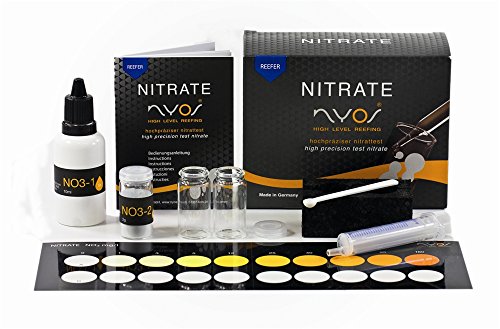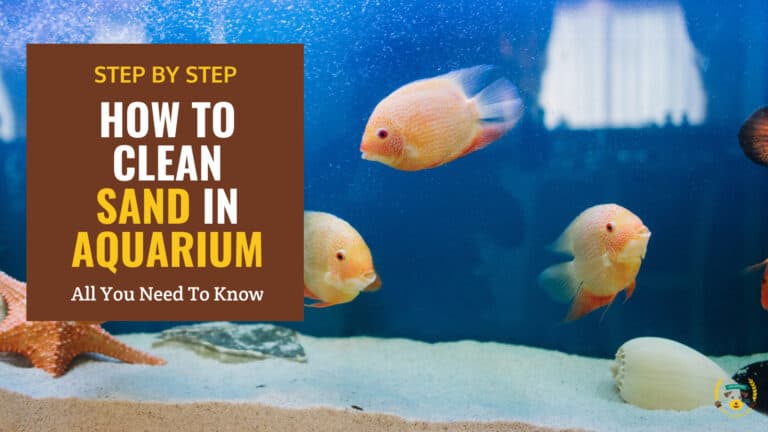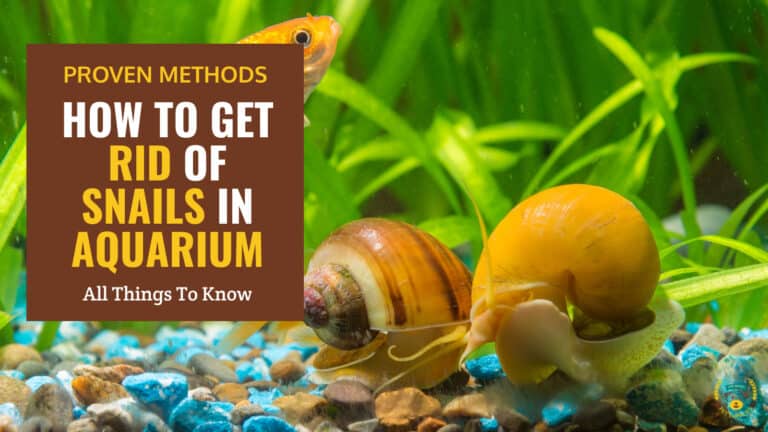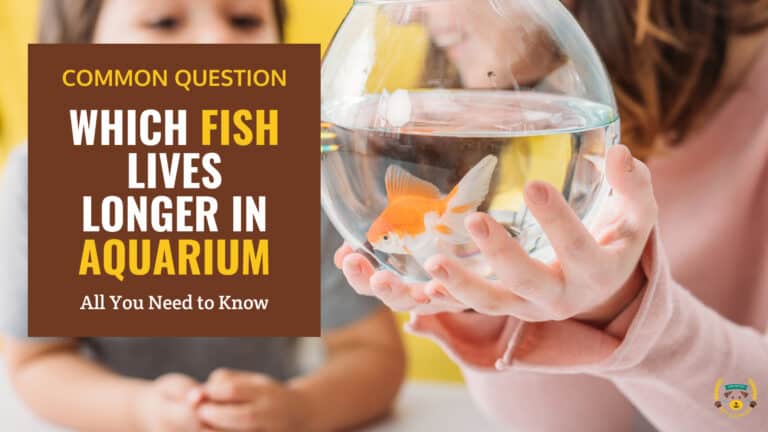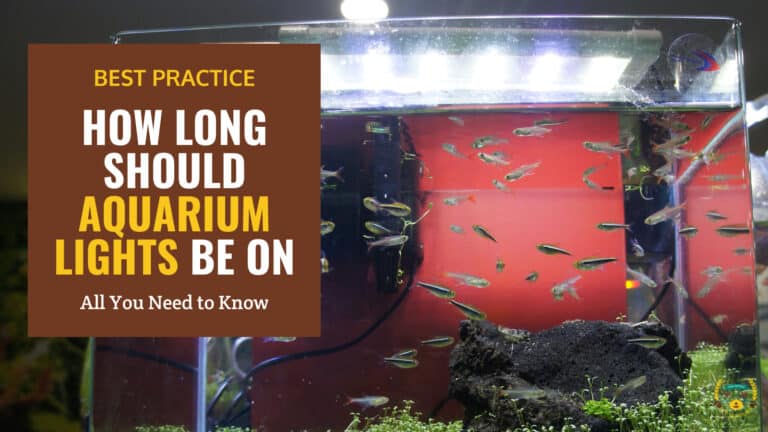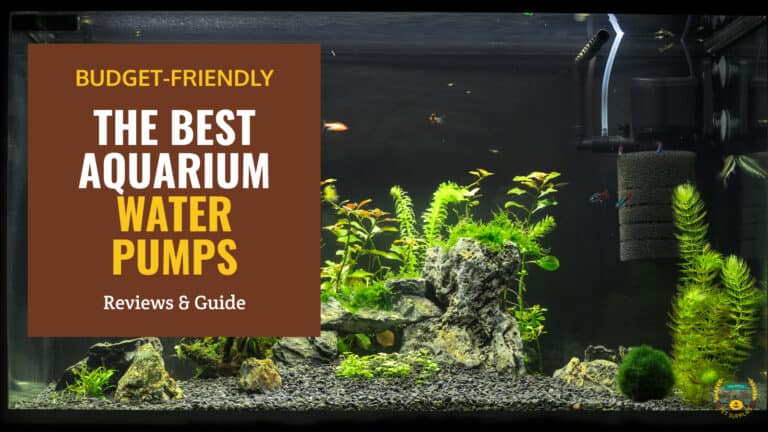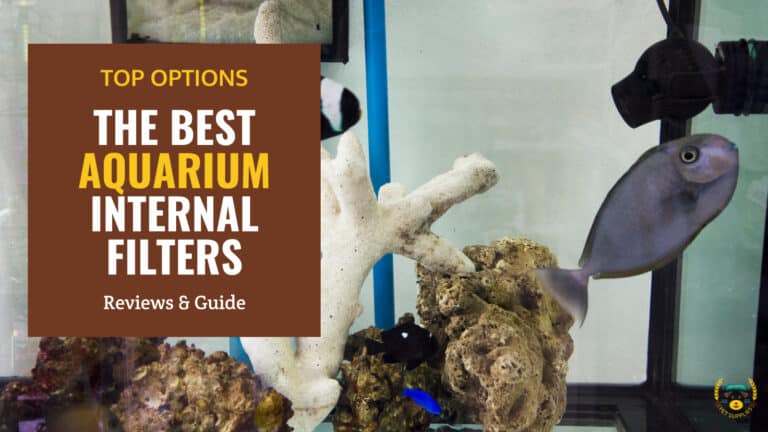The 10 Best Aquarium Water Test Kits Review & Buyer Guide
Last updated: May 2, 2024
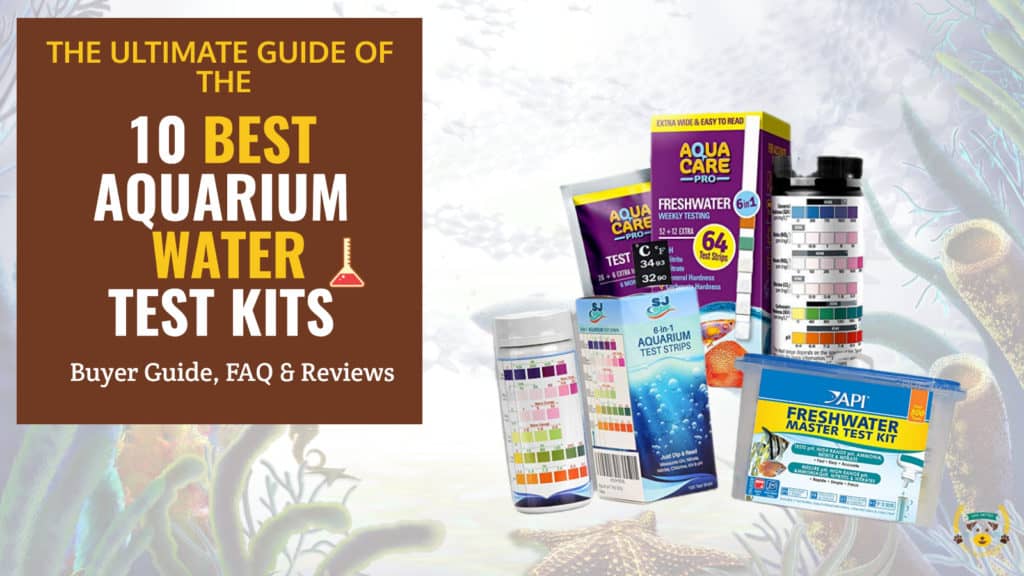
Summary
The API Freshwater Aquarium Master Test Kit is our top pick for the Best Aquarium Water Test Kit. It is quick and easy to use, and it measures all six critical parameters important for a healthy aquarium: pH, high range pH, ammonia, nitrite, nitrate, and carbonate hardness. The test kit is also highly accurate, providing results that are on par with professional testing.
An Aquarium water test kit is something that an aquarist cannot do without. It is crucial to measure all the tank’s water parameters and adjust if anything is found wanting. Without a test kit, there is absolutely no way you will know your aquarium's health. That way, a water test kit for your aquarium is indispensable.
Have you been looking for an effective aquarium water test kit? Whether it is freshwater or saltwater, the best aquarist never compromises their water test kits.
Water may look the same everywhere, but it has several minerals, chemicals, and contaminants dissolved in it. The presence or absence of these in the water can translate into being beneficial or harmful for the fish and other marine creatures.
When it comes to caring for your Aquarium, you want to make sure you are doing everything right. This starts with knowing the current water conditions that you should adjust accordingly. Testing Aquarium water can be done using several methods.
Check Also: Starting A Fish Tank For Beginners
No Time To Read The Whole Article? No Worries. We’ve Done The Work For You And Compiled A List Of The Top Performers.
| Product | Features | Our Rating |
|---|
What Is An Aquarium Test Kit?
An aquarium water kit is used to test the water in an aquarium. It can test for the levels of ammonia, nitrite, pH, carbonate hardness, and temperature. It’s essential to regularly test your aquarium water to ensure that it is healthy and safe for your fish.
The kit will usually consist of a bottle that contains the test liquid with a dropper, a test tube that has been marked, and a color chart. You’ll be able to use the dropper to place a few drops of the test liquid into the test tube.
Aquarium test kits help you test your aquarium water on various parameters such as:
- The pH level [1] of the water or its alkalinity
- Ammonia
- Nitrate level
- Carbonate and phosphate
- The hardness of the water
Steps to using a water testing kit:
Step #1– Fill about 5ml of water from your aquarium in a test tube. Do not dunk your test tube in the water; instead, use a pipette to transfer the water.
Step #2- drop about three to four drops of testing solution into the test tube. Wait for one to two minutes. You will begin seeing cloud-like formations on the surface of the water.
Step #3– Now shake the test tube gently to ensure that the solution mixes evenly in the water.
Step #4 - Match the color of water with the color chart in your testing kit.
Make sure you follow the instruction manual closely to arrive at the most accurate result.
Check Also: How To Lower PH In Aquarium Safely
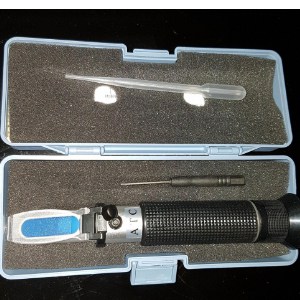
Why Should You Use An Aquarium Test Kit?
Without a master test kit, there is no way you can determine the chemical composition of your tank water, and consequently will not be able to keep a tab on the health of your marine life.
If you are a person that keeps rare types of fish and plants, then you can never overlook testing at all. Even otherwise, testing is indispensable for hobby aquarists.
- The testing kit will tell you the correct chemical composition of water and determine if it is the right one to introduce the fish.
- The kit allows you to perform periodic tests in the tank water so that the water quality stays hygienic and worthy for your marine life.
- The aquarium water test kit helps identify harmful substances such as ammonia levels in the water, nitrate, and nitrite that occur from the waste breakdown that your fish produce.
- The kits help prevent infections and diseases in the fish tank water.
Here is a good video (4 minutes 41 seconds) from the Friday Fish Facts channel explaining how to test your water, remove nitrates, and how often water should be changed in your aquarium:
Types Of Aquarium Test Kits
There are various types of test kits available in the market. Below listed are a few:
Test Strips
The testing kit will consist of plastic strips coated with reactive pads. Each of the pads measures one parameter. The strips are colorimetric, meaning that the result will depend on the color of the strip. Every kit includes a color chart for reference. All you need to do is dip the strip in the marine aquarium and hold it for a few minutes. That’s it!
Liquid Tests
Liquid aquarium water test kits are also colorimetric [1] but much more reliable than strips. They could be a little more time-consuming, and they will require you to test water samples and add reagents to them to understand the water parameters.
Electronic Water Tests
If accurate water chemistry is what you are looking at, then electronic tests akin to labs are what you must zero in on. They may be small, but they work in record time; no waiting to understand the water parameters you need to collect a sample from the tank and mix reagents. Tada!
The tests are accurate, and they come with a display portraying all the important parameters. Most of the time, aquarists use this for sensitive aquarium fish or reefs. They are battery-operated and may need calibrating. They are the costliest.
What Do Aquarium Test Kits Measure?
Aquarium testing kits help test many important parameters that you must check when it comes to fish and reef aquariums. Predominantly, these are
- The ammonia content
- The amount of nitrite, nitrate, and phosphate present
- The fish and reef tank’s pH value
- The carbonate, phosphate, water hardness, etc.
- Water temperature is also an important parameter to check
The pH test kits on the market are inexpensive and quite accurate to test the water in your aquarium. To check the pH, add some of the water from your saltwater tank or freshwater aquarium in a test tube, use a testing strip or drop a few drops of testing solution and watch the color change. Use the color chart in the kit to determine your aquarium’s health.
Normal pH is always in the range of 6.5 and 7.6; it is considered neutral. The pH of water is a transient value, and it keeps dropping because of the fish waste and the breaking of other organic material inside the tank. You must regularly change the partial water in the tank.
If your test results indicate a very high pH level in the range of 9-14, it will harm your fish by denaturing their cellular membranes. A very low pH level below 5 accelerates the release of metals from the rocks inside it. Too high pH or too low pH affects aquatic life drastically by altering the water chemistry.
Fish reproduction for many species in your saltwater aquarium or freshwater will be adversely affected if the waterfalls' pH is 5. If it dangerously falls below 4, you must be prepared for the worse.
The nitrate that is produced in your aquarium is highly toxic to the fish life inside your tank. If you are wondering how it came there in the first place, then it is because of the waste that your fish generates, the rotting of their leftover food, as much as the decomposing green plants inside your tank. Your tank’s bio-filter first converts the ammonia into nitrite and later into nitrate. All three are harmful to the fish and reef life inside your tank.
Here's a video (16 minutes 14 seconds) that thoroughly explains all you need to know about the pH level of your aquariums.
How Accurate Are Aquarium Test Kits?
If you have asked this question often to yourself, here are some hard facts.
- The testing strips are often considered to be less accurate than the liquid testing kits. If you are looking for precise results, for example, in commercial aquariums, then scientific probes and instruments may be the best thing for you.
- For hobby fish keepers, testing kits are good enough. The only thing about them is that you need to get used to them and practice understanding results by matching results with the color card.
- When you are raising rare species, or sensitive plants, fish, reefs, and corals, you will want to look at something more precise like the electronic kits. For beginner-level fish keeping, the liquid water testing kits are good enough.
- Precise testing kits are not very pocket-friendly. They may be quick and easy-peasy, though. They also have a longer shelf life than the rest because they are battery-operated. They are precise to the last digit and a great way to handle your tank's water quality.
How Often Should You Use An Aquarium Test Kit?
The best piece of advice that you can get as a hobbyist or a serious fish keeper is to test your water every day to understand how the tank’s nitrogen cycle is progressing.
Once you feel confident that your tank is all set up and cycled, you could reduce the testing frequency to once in three days or once a week.
A point of concern is that if you notice irregularities in the aquarium water, such as cloudiness in water or that your fish are stressed, test without wasting a single minute.
It is critical not to lose your fish in such cases due to the rise in single rogue parameters such as ammonia or nitrite. You can overlook other things once in a while, but testing your waters is not one of them.
Our Recommendations Of The 10 Best Aquarium Water Tests
As a fish hobbyist, your aquarium is one of your most prized possessions. You have invested time, money, and effort into building a healthy ecosystem for your aquatic pets.
Testing your water constantly is one of the most critical aspects of the hobby. Over time, the water quality in your aquarium will naturally change. Testing your water regularly makes your fishkeeping life easier, and keeps your tank healthy, and your fish happy.
To help you with this task, we have put together a list of our top 10 best aquarium water test kits.
Based on our research, testing, and experience, below is our final list:
API Freshwater Aquarium Master Test Kit
API water testing kits have made a name for themselves when it comes to testing kits. They are the most ideal thing to pick up to do regular testing. Obviously, you do not want to spend too much.
The kit is quick and easy to use to measure all the six critical parameters important for a healthy aquarium. The best water chemistry will translate into having healthier fish, and that will mean a happier you.
The testing kit helps to understand the levels of ammonia, and nitrate. It is also the best on the market for checking the pH range. It also measures the carbonate content in your aquarium water to reveal how hard your water is.
The master testing kit consists of four test tubes, a tray, a test tube rack, and a color card. The test kit is designed with freshwater aquariums in mind. We know how much you love your finned friends and mean only the best for them.
The best thing to do is to make sure that they are not swimming in toxicity. All you need to do is fill about 5 to 10 ml of water in the test tubes and add the testing liquid. The result can be checked in a matter of minutes!
Pros
- Scientific accuracy
- Results at par with professional testing
- Instruction leaflet and color card included
- Instructions in simple terminology
Cons
- The testing kit flies off the shelf in no time.
Editor’s opinion
Trust only API for your freshwater aquarium testing. Do you want to test the waters because all the unconsumed food and their organic wastes accumulate, making the water highly toxic and unworthy for fish? Pick API today.
Tetra EasyStrips 6-in-1 Aquarium Test Strips for Fresh/Salt Water
This is by far one of the most popular testing kits on every retail website. It has been rated overwhelmingly. There is a flood of positive reviews about the product, and we can tell you that our team has also tested this product and found all the claims well backed. This is an absolutely essential testing kit for every fish lover.
The testing kit consists of 6-in-1 testing strips that will help you check your aquarium water's chemical composition in less than a minute! Yes, you heard that right; one minute. No wonder the product is so prized. The parameter it checks is chlorine, nitrite, water hardness, alkalinity, and of course, its pH.
All that you need to do is to dip the testing strip in the aquarium and match the color on the color card included. No removing samples in test tubes and all that mess. It is simple and quick.
Pros
- 6 in 1 comprehensive testing
- It takes only one minute to test
- Easy and convenient
- Safe for both freshwater and saltwater aquariums
Cons
- Absolutely nothing
Editor’s opinion
If you have been putting off testing your water quality because it took you an eternity to get all your things together and then check out the results, you will love the freedom this testing kit gives you no more fretting and cleaning and complaining.
SJ Wave 6 in 1 Aquarium Test Strips with Thermometer
This 6-in-1 aquarium testing kit consists of aquarium testing strips and a water tank thermometer. The company knows that measuring the water temperature is also an essential parameter that most fish noobs forget to measure. The kit itself is a reliable and quick way to test water not just in your water aquariums but also in outdoor water ecosystems such as tanks and ponds.
The kit comes really handy when you have to monitor the aquarium water's pH value along with other variables such as the nitrite, and the ammonia content dissolved in it. The testing kit also effectively measures the amount of dissolved carbonate and phosphate, indicating the hardness of the water.
The box comes with a detailed color chart that is useful for reading the test results. The packaging is brilliant because the tests are individually packed. This increases the kit's shelf life, and there is absolutely no need for you to rush to use them for the fear that they would spoil. They are ideal for all types of tanks.
Pros
- Very easy to use
- A color chart in high resolution
- Test strips packed separately
Cons
- The price may seem to be slightly on the higher side, but good things do come at a price
Editor’s opinion
Say bye-bye to comprehensive preparation and say hello to convenient testing. The SJ Waver testing kit is reliable, easy, and very quick. They are highly rated.
NYOS Nitrate (NO3) Reefer Aquarium Test Kit
The NYOS Nitrate reefer test is a brilliant testing kit for your aquariums. The reagent quality is noteworthy because it is manufactured as per EN ISO 9001 standards in Germany. This kit has received a lot of love from its patrons; in spite of the fact that the price is slightly on the higher side.
The testing kit pack consists of a total of 50 tests. The measurement rate is between 1 and 160mg. The kit is a must-have if you are raising very rare fish, other aquatic organisms, plants, and reefs especially.
The benefits that will accrue from using the testing kit ensure that you get back the worth of every little dollar you have spent on it. The liquid test kit is one of the best ones when it comes to seawater analysis. If you have reefs in your aquarium, you need to recreate such water in your tank for them to thrive.
The kit comes along with a calibrated dropper that is marked so that it becomes easy to drop the correct amount of reagent into the tank. The product is manufactured under strict quality control rules, and that is why the results are always reproducible.
Pros
- High performance guaranteed
- Best on the market for seawater testing
- Made in Germany product
- Highly commended
- Best for seawater aquariums
Cons
- Customers may find the price steep, but the price-performance ratio takes the cake.
Editor’s opinion
This fabulous testing kit has been rated very well across all the platforms. It is a must-buy if you have reefs in your tank.
API Different Styles Test Kit
It is not possible to talk to a fish hobbyist without them mentioning API testing products. That is how popular they are! The product rating for its single and well as composite parameter testing are overwhelmingly positive. If reviews and testimonials were a thing to go by, then this is the product that you must count on for testing aquarium water.
The different parameters testing kit is a boon for those who already have test kits for some of the values and are not looking for an all-in-one kit. This is a novel way to save a lot of money because you cannot invest in a product again.
The individual testing kit consists of a single testing aid addressing the undesirable chemical in both freshwater and saltwater aquariums. The test is colorimetric by nature, and the box includes a high-resolution computer-printed color card for deriving the result. The test kit comes with a single glass test tube and its cap.
There is absolutely no need to convince people about its efficacy; if they have used it, they already know it’s worth it already. Standard packaging is 150 grams.
Pros
- Helps to monitor individual chemical
- Finned friends can stay happy and without stress
- Prevents a single chemical or contaminant from affecting the marine life
- Superb accuracy in detecting the chemicals
Cons
- Individually bought test kit can turn out to be a costly affair
Editor’s opinion
The testing kits for single chemicals are ideal when you discover nagging fish problems in your fish tank. It helps to target them right without interfering with other water parameters.
API 5 in 1 Freshwater & Saltwater Aquarium Test Strips
Let nothing ever discourage you from raising finned friends. Many fish raisers are known to give up on raising fish and exotic varieties of reefs and plants when they start seeing their fish die despite their best care. It is obvious that they are missing out on efficient testing.
With API 5 in 1 aquarium testing strips, testing is a matter of minutes! Poor quality of water in the aquarium tanks is the main reason why fish come under extreme stress. To offset its poor quality, it is essential to regularly probe water quality so that the undesirable parameters are handled well.
API 5 in 1 test strips help to identify pH, nitrite, nitrate, carbonate values, and hardness in the water. The packaging is world-class. It is entirely moisture-proof since that can decrease the shelf life of the testing strips. Along with the test strips, you will find comprehensive instructions and an information brochures on improving the quality of your tank water.
Pros
- Measures all the five important parameters
- Best freshwater master test kit
- Dip the strip in the aquarium directly
- Suitable for both saltwater and freshwater tanks
Cons
- Absolutely nothing
Editor’s opinion
The color-coded chart has distinctive colors that help to decipher precise test results. It is also effortless to read.
Sera Aqua-Test Box (+ Cu) Aquarium Test Kits
Experienced aquarists never become complacent about testing their aquarium water daily. Some of them are so proactive that they can predict colonization by algae and fungi in their tanks! If you are someone that raises rare species or has a similar ambition for the future, this Sera Aqua water testing kit should compulsorily be a part of your gear.
The kit helps to test each for the water's pH value, for checking the general hardness of the water, its carbonate hardness, the levels of ammonia and ammonium, nitrite, phosphate, iron, copper, and chlorine (phew, long list there!).
The kit is an effective way for freshwater tanks and natural marine ecosystems like ponds and lakes. Experts have highly recommended the product as a master test kit because it includes all the important test criteria that are accurate, easy to perform, and easy to read and decipher results.
Pros
- Very effective
- Easily available
- Very responsive customer care
Cons
- It is a brilliant product, but there is no commercial exposure, and that is why a lot of people do not know about this option that they have.
Editor’s opinion
The company is into a lot of other things related to the hobby as well as serious fish-raising. It also offers technical equipment and support to enhance the aquariums.
AQUA CARE PRO Freshwater Aquarium Test Strips
Aqua Care freshwater aquarium test strips come with six different tests in one package. There is a test each for testing pH, nitrite, Chlorine, general, and carbonate hardness. One thing that sets this testing strip kit ahead of all its competitors is that the strips are really wide, so they are easier to handle when dipping in the water tank and reading the results.
The kit is widely reviewed on various sites, and almost all of them are positive. A packet consists of 100 strips.
There are no two things when it comes to monitoring your fish tank’s water. It is even more important if you are housing tropical fish in them. Since you are looking to raise healthier varieties and want them to thrive, you cannot afford to overlook regular water testing for rogue parameters.
Experts have designed the product, and that is why it is wider than most other testing strips. The reactive pads also do not bleed on other things, and that is how they have an enormously big shelf life.
Pros
- They are designed for ponds and aquariums
- Very affordable
- Packaged thoughtfully so that they retain freshness for longer
- Comes with detailed testing instructions
Cons
- Nothing at all
Editor’s opinion
The company’s customer support desk is a winner in a lot of ways. It takes calls 24/7/365, and they also connect you to aquatic biologists for free on-call consultations. The package comes with an e-book that has great tips and tricks for avid fish enthusiasts.
Salinity Refractometer for Seawater and Marine Fishkeeping Aquarium
The dual scale meter is the most professional salinity reading meter and the best water testing kit for marine ecosystems. They can also be used in domestic aquariums. The saltwater testing done by the equipment is in the range of 0-100ppt. It is a very well-received product, with people lavishly praising it on various fora.
It comes with an amazing 10-day money-back guarantee in case you are not satisfied with its quality. The body is durable because it is made out of ABS rubber and has aluminum detailing. It has an anti-abrasion and anti-corrosion coating on it. The package casing is very good and will keep the refractometer safe for a long time to come. Any auto-calibration does not affect the accuracy of the results. The data has an adjustable focus eyepiece that makes it very easy to read the results.
The instrument is also very easy to calibrate using a small-sized screwdriver. It is lightweight and easy to wield at only 250 grams.
Pros
- Great for tanks, aquariums, salty pools, and spas
- Requires only 2 to 3 drops as samples
- Takes only 2 minutes to measure the salinity
Cons
- It may seem a little costly to check only one parameter that is salinity. But it has an amazing look and feel.
Editor’s opinion
If you are itching to replace your refractometer, then now is the time. This awesome testing equipment needs only about 2 to 3 drops of your sample, and it will be ready with the most accurate result in less than 10 seconds.
Tetra EasyStrips for ammonia testing in aquariums
Ammonia is highly detrimental to marine health. That is why regularly testing your tank and aquarium water for ammonia is a prudent thing to do. Tetra’s ammonia testing strips work very well both in freshwater as well as saltwater aquariums and tanks. They are very easy and convenient; the result will be at your fingertips in less than 10 seconds.
If you are a tech-savvy fish person, you could download the TETRA MY aquarium APP and get instant recommendations on your test results. Ammonia testing is a sine qua non and un-skippable when you are setting up a new tank.
However, regular testing will ensure that you know the value well and continuously strive to improve its quality. The product comes in a pack of 25 strips and is very well rated across the platforms.
The test kits are of very good quality and are completely safe to use irrespective of the species in the tank. They are non-toxic, and they will not cause any contraindications in your water or your raised marine life.
Tetra has been in business for 50 plus years, and there is a general opinion that they manufacture nothing less than the best for your finned friends' health.
Pros
- Easy to test
- Fast and accurate
- Sterling reviews
Cons
- It is a single value testing kit only
Editor’s opinion
Regular testing for ammonia will ensure that you meet a lot of success with your fish and reefs, and other exotic water plants. The product is a result of advanced technology. Designed by Aquatic Biologist, you can be assured of its efficacy.
What Is The Best Way To Test Aquarium Water?
- Testing strips do not require any preparation for testing. Pull out individual strips from the packaging and dip them in the tank water for a stipulated period as recommended. When the color of the strip changes, match the color with the color closest to the color card to derive the result.
- Liquid test kits come complete with test tubes and reagents for every single parameter. Take 5 to 10 ml of tank water in the test tube and add the recommended number of liquid reagent drops. Wait for a few minutes for the reaction to take place. Now corroborate the color in the test tube with the color card.
- Digital hand-held testing kits are easy to use. Probe electrode directly into tank water and hold it for a few seconds or till you hear a beep. The results displayed are most accurate, with only a 5 percent scope for error.
All the above testing methods are suitable for both freshwater fish and saltwater fish. It is good to note down results in a log to determine fish buying in the future.
FAQ About Aquarium Tests Kits
What Is The Difference Between Testing Freshwater And Saltwater Tanks?
1. A freshwater tank [2] is perhaps the first aquarium for most hobbyists. This is because they are easier to maintain, and there is not much that you can gaffe about them.
Freshwater tanks are more pocket-friendly than their counterparts. The tank can be made of glass or acrylic. There should be a good filtration system and some live plants. Some of the freshwater fish species include Cichlids, betta, and tetra fish. The cost of procuring these species is not bank-breaking.
2. Saltwater tanks [3] are more costly, especially because their tank size is big. The cost of procuring the saltwater species is as high as the maintenance of the tank. They require extra filtration equipment such as live rock, mechanical and chemical. You will also need to invest in protein shimmer to remove the dissolved water. A saltwater aquarium is costly and more colorful than a freshwater one.
Do Aquarium Test Kits Expire?
Gratefully, aquarium testing kits have a long shelf life. They could go on for about three to four years, and that is a very long time. If you are used to testing the water, say once a month or less, your bottles will be done and dusted in a matter of a year and a half max.
Every liquid test bottle has many numbers printed on its label or the underside of the bottle itself. The last four digits per the rule book are the month and the year of manufacturing.
Usually, the pH range, ammonia test, Nitrate, phosphate, and Copper easily last over three years. Nitrite has a shelf life of mostly four years. The low range pH in a freshwater fish tank and the alkalinity test usually stay good for a whopping five years. Do not use any of the tests that have passed five years. It is better to dump them and go for new ones than lose your precious fish getting the wrong results from the test kits.
How Do You Make Tap Water Safe For Fish?
If you have thought that distilled or RO purified tap water is best for your fish, think again! Water devoid of essential minerals may not be as beneficial to most aquatic life because you need to create similar water chemistry to where they come from.
* Test your tap water for pH and alkalinity. Check if the nitrate and phosphate level is suitable for your saltwater and freshwater tropical fish
* Let the aquarium sit for 2 -3 days before you introduce your fish to it; test the water before putting them in
* Make sure your fish are acclimatized to your aquarium.
* Make sure to change 10% of your aquarium water every week. 25% of the water in the tanks need to be cycled every fortnight
* During water changes, make sure that the water you replace is similar in temperature
* Treat your tap water with water conditioners so that it neutralizes chlorine and ammonia
* Filter and cartridge changes must be done diligently every month; if they can be removed, clean and rinse them under running water.
* Do a regular inspection of your marine life.
* Do not overcrowd the aquarium as it can lead to water quality issues.
Final Thoughts
Good quality water and bad quality water can look identical when you look at it. You can never tell with your bare eyes if parameters such as ammonia or nitrate are high. That is why we recommend that you use the best aquarium water testing kits because bad quality water is detrimental to your marine life. It can create a lot of stress in them and lead to diseases and even death.
Anyone looking to have healthy fish in their aquarium must test their water quality from time to time. We all can be lackadaisical (no judgment there) when it comes to changing the water regularly, but it is the only way you can manage to have happy fish and consequently a happier you!
References:
- Aquarium Water Quality: pH / Aquarium Fish / Recreation and Leisure / Consumer Resources / Home - Florida Department of Agriculture & Consumer Services. Www.fdacs.gov. Retrieved from https://www.fdacs.gov/Consumer-Resources/Recreation-and-Leisure/Aquarium-Fish/Aquarium-Water-Quality-pH
- Freshwater aquarium. Wikipedia. https://en.wikipedia.org/wiki/Freshwater_aquarium
- Marine aquarium. Wikipedia. Retrieved from https://en.wikipedia.org/wiki/Marine_aquarium




